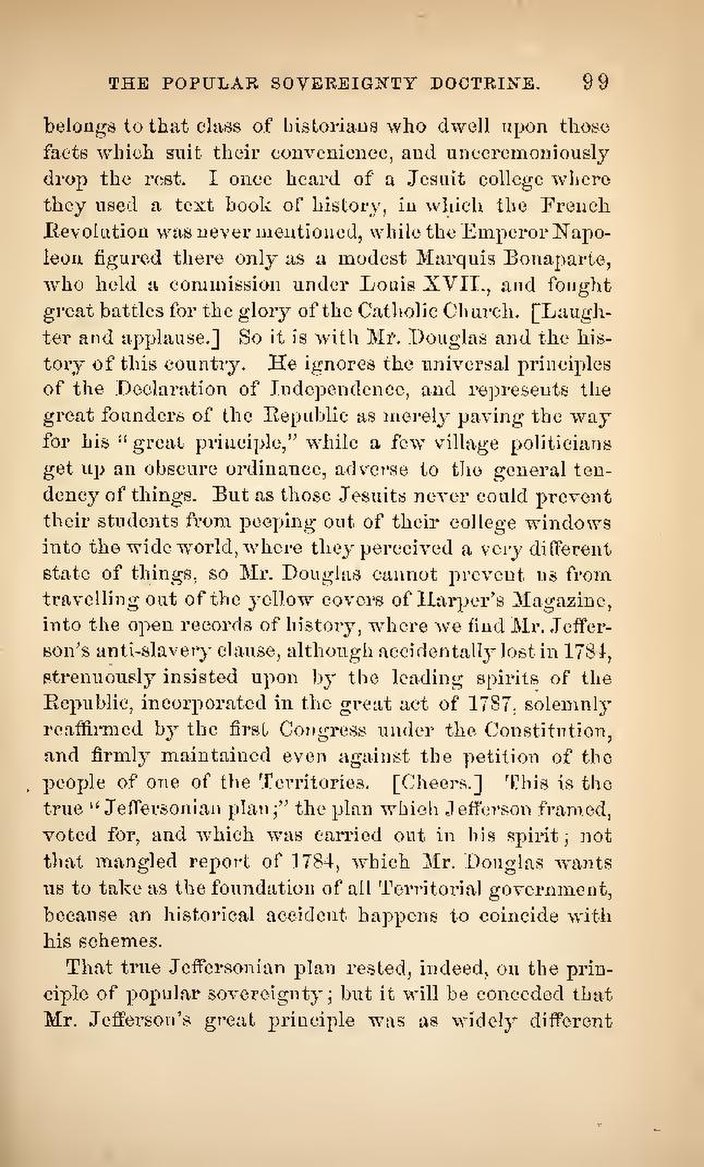belongs to that class of historians who dwell upon those facts which suit their convenience, and unceremoniously drop the rest. I once heard of a Jesuit college where they used a text-book of history, in which the French Revolution was never mentioned, while the Emperor Napoleon figured there only as modest Marquis Bonaparte, who held a commission under Louis XVII., and fought great battles for the glory of the Catholic Church. [Laughter and applause.] So it is with Mr. Douglas and the history of our country. He ignores the universal principles of the Declaration of Independence, and represents the great founders of the Republic as merely paving the way for his “great principles,” while a few village politicians get up an abusive ordinance, adverse to the general tendency of things. But as those Jesuits never could prevent their students from peeping out of their college windows into the wide world, where they perceived a very different state of things, so Mr. Douglas cannot prevent us from travelling out of the yellow covers of Harper's Magazine, into the open records of history, where we find Mr. Jefferson's anti-slavery clause, although accidentally lost in 1784, strenuously insisted upon by the leading spirits of the Republic, incorporated in the great act of 1787, solemnly reaffirmed by the first Congress under the Constitution, and firmly maintained even against the petition of the people of one of the Territories. [Cheers.] This is the true “Jeffersonian plan,” the plan which Jefferson framed, voted for and which was carried out in his spirit; not that mangled report of 1784, which Mr. Douglas wants us to take as the foundation of all Territorial government, because an historical accident happens to coincide with his schemes.
That true Jeffersonian plan rested, indeed, on the principle of popular sovereignty, but it will be conceded that Mr. Jefferson's great principle was as widely different
